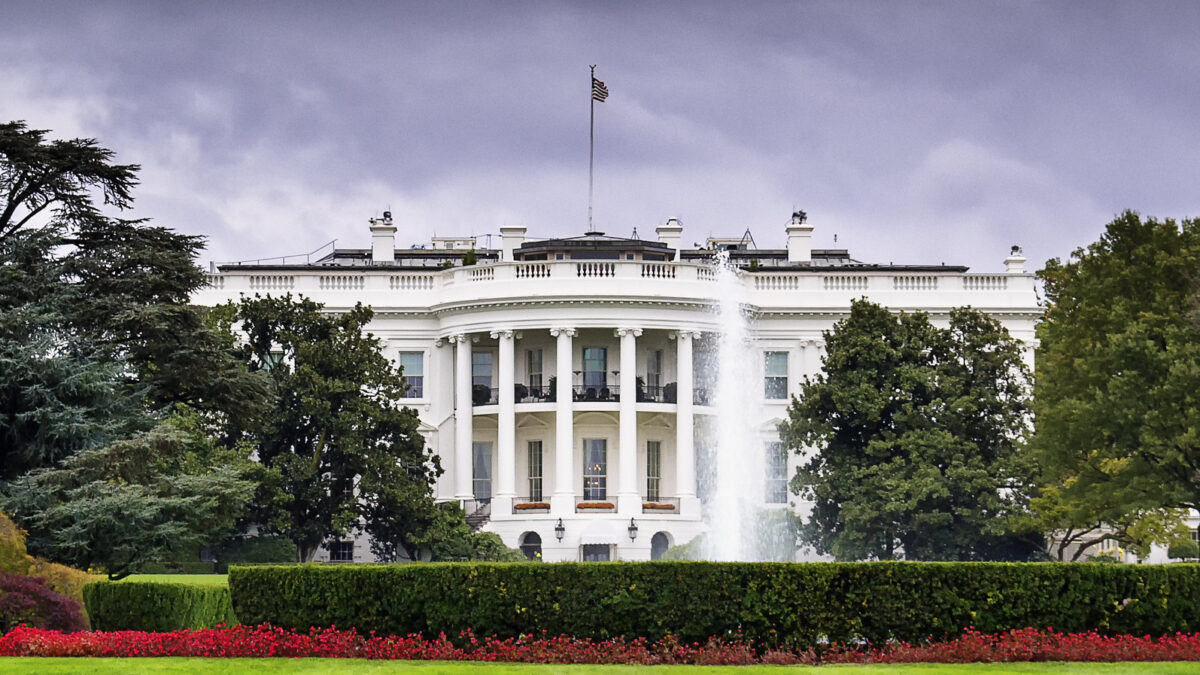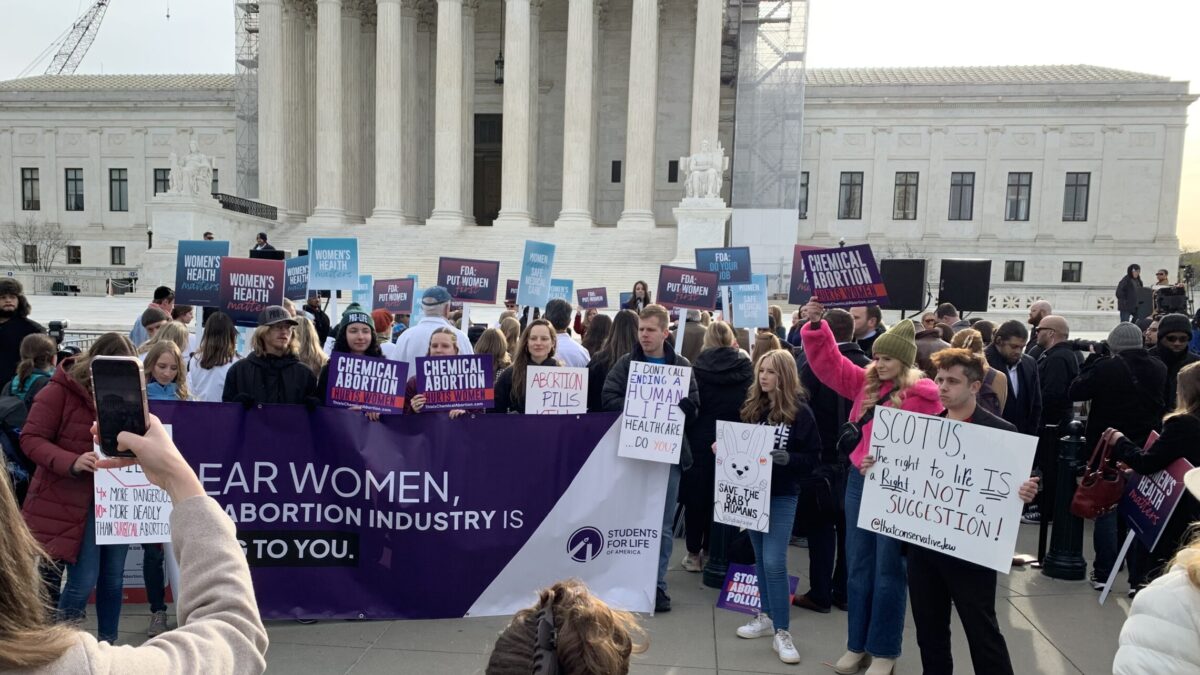
The Supreme Court struck down a 1992 federal law prohibiting states from allowing gambling on sports on Monday. The ruling paves the way for legal sports gambling in those states that choose to allow it, and stands as a victory for federalism. It’s a small step toward returning the United States to the proper state of balance between federal state and local governments.
Murphy v. NCAA was originally Christie v. NCAA, before a change in the New Jersey governor’s office led to a change in the name of the case, and it may end up being Chris Christie’s greatest legacy to his state. The case may also go a long way toward revitalizing Atlantic City and taking sports books from the shadowy internet companies and into the perpetual daylight of regulated casinos. The ruling will make legal that which operated fairly openly but officially illicitly, and could provide more revenue for states that would otherwise turn to taxation.
Whether it’s right to gamble on sport was irrelevant to the Court’s decision as authored by Justice Samuel Alito, and rightly so. The case turned on whether the federal government had the power to coerce state legislatures, not whether the idea behind the law was a good one. By sticking to that question in its ruling, the Supreme Court did its job in a way that should be expected but is in truth all too rare in modern jurisprudence.
The law in question, the Professional and Amateur Sports Protection Act (PASPA) was not a straightforward ban of sports gambling in America. Whether the Constitution grants Congress the power to do that is still an open question. What PASPA did when it was passed in 1992 was to freeze in place the then-current state of the laws of the fifty states concerning betting on sports.
Right away, that should raise a red flag in terms of basic fairness, because without actually singling out any state by name, the effect of the law was to allow sports books to exist in states where they were legal in 1992 — Nevada — and to allow pooled sports betting in the three states that then allowed it — Delaware, Montana, and Oregon. PASPA also gave New Jersey a year to authorize sports betting in Atlantic City, again without naming names. But the New Jersey legislature never acted, and that exception lapsed.
As Ilya Shapiro wrote here at The Federalist last December, the case took a twisting path through the courts as various judges tried to figure out exactly what PASPA did and did not ban:
New Jersey’s boat missed that safe harbor, however, as the state legislature didn’t get around to passing its Sports Wagering Act until 2011—after a referendum showed that a large majority of residents wanted to get in on the action. This state law authorized regulated sports betting at casinos and racetracks.
The NCAA and the four major professional sports leagues sued and were granted an injunction against the New Jersey law. The U.S. Court of Appeals for the Third Circuit affirmed, holding that the Sports Wagering Act violated PASPA’s prohibition against a state’s authorizing sports betting, but also adding that nothing in PASPA’s text “requires that the states keep any law in place.”
Accordingly, New Jersey passed a new law in 2014 that repealed essentially all state bans on sports betting at casinos in Atlantic City and racetracks throughout the state. When this second legalization effort was also challenged, the Third Circuit abandoned its previous distinction between “authorization” and “repeal,” again deciding in the NCAA’s favor.
The Court on Monday cut away these finely parsed distinctions and called the law what it was always known to be: a prohibition on the ability of state legislatures to pass certain kinds of laws. That immediately put it at odds with a line of cases that prohibited such practices in the past, holding them to be at odds with the basic scheme of American federalism.
In New York v. United States (1992), the Court struck down a federal law concerning radioactive waste in which Congress required states to either take possession of the waste or else regulate it according to a standard imposed by the feds. This was held to violate state sovereignty in a manner Justice Sandra Day O’Connor wrote was “inconsistent with the federal structure of our Government established by the Constitution.” Likewise, in Printz v. United States (1997), Congress passed a gun control law that required state officials to perform federal background checks. This, too, was held to be an unconstitutional act of coercion against state governments.
These two cases formed what came to be known as the anti-commandeering doctrine, and were the last ones the Supreme Court decided on until Murphy. If you think about it for a minute, you can see why commandeering is never required under the Constitution. If a certain power is granted the federal government under the Constitution, then the ability to carry out that power is also allowed the federal government, and no state government needs to make laws regarding that power. If, on the other hand, a certain power is not granted to the federal government, then it can’t require the states to use that power (that would make the limit on the federal government’s power effectively meaningless).
Anything the federal government can do, it must do itself.
Consider the problems that would arise if commandeering were allowed. The first, as mentioned by Justice Alito in Murphy, is that it disperses the responsibility for the exercise of power:
When Congress itself regulates, the responsibility for the benefits and burdens of the regulation is apparent. Voters who like or dislike the effects of the regulation know who to credit or blame. By contrast, if a State imposes regulations only because it has been commanded to do so by Congress, responsibility is blurred.
It doesn’t take much of an imagination to suppose that Congress, given the opportunity, would love to pass well-intentioned laws and then pass on the costs of administration to the states.
Another closely related problem Alito notes is that the cost-benefit analysis of any regulatory scheme must always be a consideration in its passage. But if Congress bears none of the costs, there is nothing to prevent them from regulating everything and expecting state governments to pick up the tab.
These are both subsets, in a sense, of the most important argument: Federalism is not just the way our Constitution happens to be arranged. It is an essential bulwark of our liberties. Separating the powers of government not only among three branches but also between two levels of sovereignty lessens the likelihood of one of them becoming overly powerful.
Murphy bears that out, and shows the Founders’ wisdom in setting power in opposition to power, in order to prevent its being accumulated in too few hands. Here, the federal government tried to limit the states and the states (eventually) took back what was rightfully theirs. The result will be increased liberty in those states that take advantage of their regained freedom.
One factor Alito did not consider, and one that should be examined any time a law is passed, however, is what would happen were a state or people living in a state to refuse to obey a commandeered law. For the oldest laws, this has been worked out for centuries. If you kill, if you steal, if you commit arson, you go to jail. Pretty simple. But for laws that conflict with the anti-commandeering doctrine, the answer is harder.
The part of PASPA at issue in Monday’s ruling does not impose any rule on the individual gambler. People who bet a Sixers game before Monday’s ruling were not the target of that section of the federal law. Instead, they were (outside Nevada) breaking a state law, one that the feds would not allow the states to alter. PASPA imposed restrictions on the states, and that makes enforcement difficult. But if section 3702(a) of PASPA prohibits any government from authorizing sports gambling, what happens if they do it anyway?
Section 3703 of the act authorizes the Attorney General to get an injunction in federal court against any violations, but when the state itself is in violation, how is an injunction enforced? Are state legislators to be jailed? Federal troops deployed? When President Eisenhower sent the 101st Airborne to Arkansas to enforce the Supreme Court’s ruling in Brown v. Board of Education, he was ensuring that a matter of vital national importance was resolved correctly. In that scenario, escalation was clearly warranted, and even then it was controversial. Eisenhower did what had to be done. Could anyone say the same of using the troops to prevent betting on ballgames?
In cases like that, the anti-commandeering rule serves to prevent a situation where the only choices are extreme: martial law, or allowing the law to be broken. If commandeering were allowed, the federal government would do it all the time for the reasons already discussed. And some state, sooner or later, would rebel. Instead, we have courts that are committed to preserving federalism peacefully and preventing the kind of constitutional crisis that would otherwise occur on a regular basis. In Murphy, this rule is reinforced and the country is freer and less chaotic for it.








